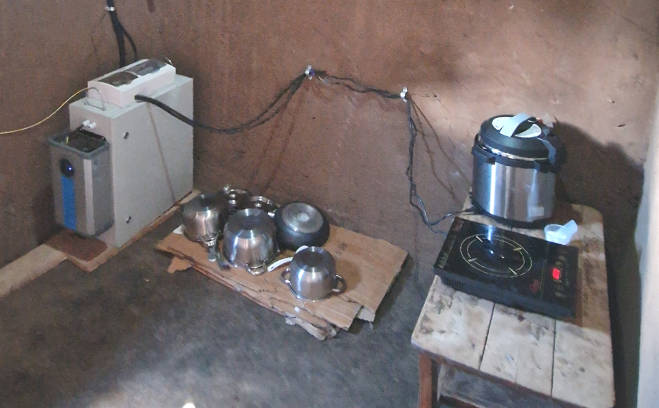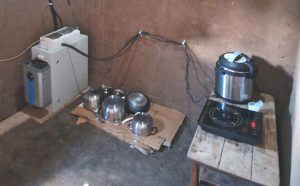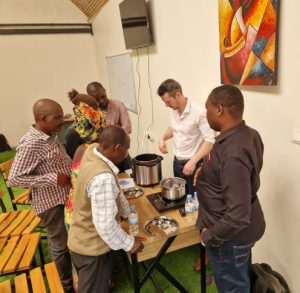
“Around 30% of the world’s population lacks access to clean cooking facilities, while around 10% lack access to electricity, with both disproportionately affecting women and children,” according to the university. “As energy systems become more reliant on advanced digital technologies, under-served communities face heightened risks of inequality.”
Led by Alison Halford and Jonathan Nixon from Coventry’s Centre for Computational Science and Mathematical Modelling, the Solar Energy Transitions project collaborated with a Rwandan community to designed a solar-powered electronic cooking systems.

“Over seven months, the team monitored energy use, air quality and cooking habits using more than 100 sensors,” said the university. “Households reduced firewood consumption, from 3.4kg/day to 0.86kg/day, while kitchen air quality improved by over 70%. Cooking times reduced significantly, freeing up hours previously spent gathering wood or preparing meals.”
But isn’t the up-front cost of the equipment prohibitive?
Not if the whole picture is taken into account, Nixon told Electronics Weekly, as fuel costs are reduced or eliminated, time is freed for economic activities, and improved household health can reduce medical expenses:
No one was willing to sell their system [at the end of the project], a testament to the impact these systems had on their lives, especially considering these households are at high risk of poverty.
We witnessed a transformative shift in the distribution of domestic labour with the introduction of the solar e-cooker. It became a shared family responsibility rather than solely a task for women. This change has significantly enhanced economic opportunities for women, enabling them to pursue entrepreneurial activities.
Time spent on wood collecting – which is mainly done by women and young people – dropped from an average of 3hour/day, and over 5hour/day in some homes, to less than an hour a day.
Given the increases charcoal LPG and firefood cost – and charcoal has been made illegal in some regions now – solar e-cooking can be a cheaper alternative for the first time.
We are exploring various carbon financing and subsidy programmes with Rwanda Energy Group, and hope to make solar e-cooking more accessible by reducing the initial up-front cost. Mobile payments and pay-as-you-go, for example, are now widely used for solar and are popular, even very remote rural areas.
Solar-power projects are not always successful.

Also in the project were Kabananiye Janvier and Habyarimana Cyprien from Rwanda Energy Group’s R&D team, and Richard Mori from MeshPower.
Funded came from Innovate UK’s Energy Catalyst Round 9.






